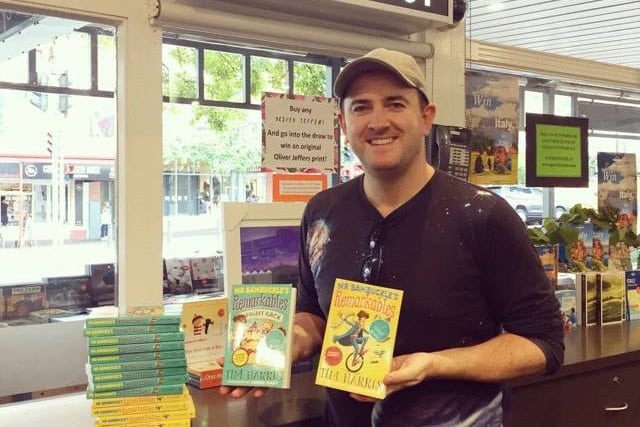 Forget expensive gadgets, selective schools, tutors or even the latest technology, new research suggests that books can be the most beneficial aspect to a child’s learning.
Forget expensive gadgets, selective schools, tutors or even the latest technology, new research suggests that books can be the most beneficial aspect to a child’s learning.
The study of 5000 children by the Australian Catholic University’s Institute for Learning Sciences released this week has revealed that parents who read regularly to their children have better language skills as they grow older as well as a stronger likelihood of better academic achievement.
Researchers used data from a large scale nationwide study of Australian children which followed their development since 2004.
Research author Dr Ameneh Shahaeian said the findings prove the old adage “the simple things in life are often the best”.
He said young children subjected to frequent, early reading was linked to NAPLAN reading, writing, spelling and grammar ability – and more surprisingly – mathematics grades.
“Too often the ‘best’ option is seen to be an expensive device, or attending a specific school, which is out of reach of many,” he said.
“These results show that reading to children as early and as often as possible can have long-lasting benefits for later school success, not only in literacy but also in mathematics.
“For busy parents the message is a simple one. If there’s only one thing you can do with your children it should be reading.”
And there’s never a better time to encourage a child to read than in the school holidays with experts suggesting a book series the most successful to promote a lifelong love of the written word.

A book series enables young readers to become familiar with characters, the setting and the general framework of the story as well as motivating them to continue reading other books in the series to find out what happens next.
By becoming engrossed in a book series, young readers may be more likely to put down video games or turn off the TV and begin to think of reading as an activity they would willingly do.
One of Australia’s most exciting young authors and former school teacher, Tim Harris, said his love of reading was discovered by the Narnia series of books.
The author of the hugely successful Exploding Endings and Mr Bambuckle’s Remarkables collections said as a reluctant reader himself he was introduced to the popular series during his school holidays and never looked back.
“I was bored so my mum gave me The Lion, The Witch and The Wardrobe. Not being a reader I begrudgingly took it and out of boredom more than anything started to read it,” he said.
“I had never liked reading and only did it if I absolutely had to so didn’t hold out much hope but something happened in those first few pages that grabbed me and I was hooked. I made my way through the first book and begged mum for the next one. It is something I will never forget.
“Getting young readers, particularly reluctant ones, onto a really good series is the best way to instil a love of reading. There’s a sense of familiarity, they feel confident they can finish it and just as importantly understand it.
“Once they are into a series it becomes their own little world, a place they can escape to and fell really comfortable.
“Holidays are a great time to introduce a series to young readers, as you can make their environment conducive to chilling out, particularly when its miserable outside, and do it as a family and stop and talk about what you’ve read.
“It can be a lovely bonding experience for the whole family.”
Tim’s tips for encouraging holiday reading:
- Visit a bookstore or library:
There is great joy in browsing the titles, as well as chatting to the knowledgeable staff who can point readers in the right direction. Bookshops and libraries often have wonderful holiday programs that promote a love of reading.
- Create shared experiences:
Read aloud to children and discuss what’s happening in the story. Whether a picture book, middle-grade novel or audio book, shared reading creates valuable discussion time and importantly, bonding.
- Allocate reading time:
We often allocate screen time in an attempt to limit it, so we should also allocate reading time in an attempt to strengthen it.
- Leave books out:
Shelved books are not as easy to open as books left on coffee tables, sofas and kitchen benches.
- Read by example:
Turn the television off after dinner and read in front of your children. Kids are great mimickers.
